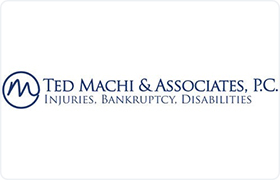Fort Worth Collection Lawyer, Texas, page 2
Sponsored Law Firm
-
 x
x

Click For More Info:
-
Machi & Associates, P.C.
1521 North Cooper Street Suite 550 Arlington, TX 76011» view mapAccident & Injury, Bankruptcy, Social Secuirty We Fight So You Don't Have To
Our professional team of attorneys and staff provide the experience and expertise needed to effectively handle your case.
800-804-0771
Gaylene Rogers Lonergan
Corporate, Banking & Finance, Collection, Bankruptcy
Status: In Good Standing *Status is reviewed annually. For latest information visit here
Lance Vanzant
Estate Planning, Family Law, Corporate, Collection
Status: In Good Standing *Status is reviewed annually. For latest information visit here
Gregory C. Mack
Alimony & Spousal Support, Child Support, Corporate, Collection
Status: In Good Standing *Status is reviewed annually. For latest information visit here
Marvin Champlin
Contract, Litigation, Collection, Trusts
Status: In Good Standing *Status is reviewed annually. For latest information visit here
Mark Harden
Contract, Collection, Wrongful Death, Consumer Protection
Status: In Good Standing *Status is reviewed annually. For latest information visit here
Terry Michelle Burks
Reorganization, Garnishment, Collection, Credit & Debt
Status: In Good Standing *Status is reviewed annually. For latest information visit here
Mark P. Blenden
Bankruptcy & Debt, Credit & Debt, Litigation, Collection, Credit & Debt
Status: In Good Standing *Status is reviewed annually. For latest information visit here
Tom Clayton
Divorce & Family Law, Credit & Debt, Collection, Bankruptcy, Bankruptcy & Debt
Status: In Good Standing *Status is reviewed annually. For latest information visit here
Chad L. Farrar
Personal Injury, Collection, Insurance, Family Law, Employee Rights
Status: In Good Standing *Status is reviewed annually. For latest information visit here Licensed: 30 Years
Judith Knudsen
Employment, Business & Trade, Collection, Litigation
Status: In Good Standing *Status is reviewed annually. For latest information visit here Licensed: 24 Years
 Ted Machi Arlington, TX
Ted Machi Arlington, TX Practice AreasExpertise
Practice AreasExpertise